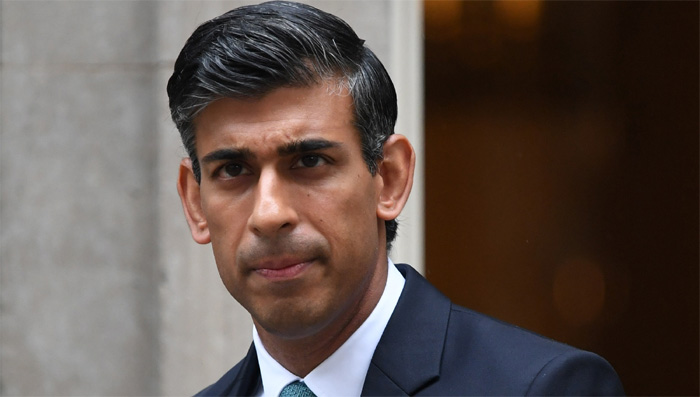Rishi Sunak’s party loses 2 key seats ahead of UK general election
Rishi Sunak suffered a dramatic political upset as his ruling Conservative Party lost a key parliamentary election in northern England to Labour, which overturned a huge majority that gives Keir Starmer’s party clear momentum as it gears up for a national vote expected next year.
The Tories also lost a key seat in southwest England to the Liberal Democrats, a double punch that will worry the prime minister — though Sunak was spared a whitewash when his party unexpectedly held ex-leader Boris Johnson’s old seat in a close result on the outskirts of London.
The Conservatives had downplayed their chances in the three special elections in very different parts of England on Thursday, arguing that even winning in one contest would represent a victory given governments are traditionally given a kicking in mid-term votes.
But the scale of the defeats will raise more questions about whether he can turn around his party’s slump in the polls, which began under Johnson and has barely recovered from Liz Truss’s disastrous seven-week premiership last fall.
“The tide is still a long way out for the Conservatives and they still have an awful long way to go before they look as though they might have a chance of being able to retain power after the next general election,” John Curtice, professor of politics at Strathclyde University, told the BBC.
Keir Mather won 46% of the vote in Selby and Ainsty, a rural seat in North Yorkshire that has been in Tory hands since it was created in 2010, compared with Labour’s 25% when the seat was last contested in 2019. Conservative Claire Holmes came second with 34% of the vote — down from 60% last time.
The result is seismic for Starmer, who can show his party is using its double-digit lead in national surveys to overturn large Tory majorities as he tries to guide Labour back to power for the first time since 2010.
The Conservatives were defending a majority of 20,137 votes — the biggest margin Labour has overturned in a by-election, the party said on Friday.
“It is clear just how powerful the demand for change is. Voters put their trust in us — many for the first time,” Starmer said after the Selby result was announced. “After 13 years of Tory chaos, only Labour can give the country its hope, its optimism and its future back.”
Meanwhile Sarah Dyke became Liberal Democrat MP for Somerton and Frome, securing a dramatic swing of 29 percentage points from the Tories that will be hailed by Ed Davey’s party as proof the Tories are vulnerable in their traditional stronghold across southern England.
That puts pressure on Sunak because it reinforces the view his Tories are being squeezed on multiple fronts. In her victory speech, Dyke said the result proved tactical voting can be used by progressive parties at elections to beat the Conservatives.
In an emailed statement, Davey said the people of Somerton and Frome had “spoken for the rest of the country who are fed up with Rishi Sunak’s out-of-touch Conservative government.”
A bad night for Sunak could have been even worse. The Conservatives unexpectedly held off Labour in Johnson’s old Uxbridge and South Ruislip seat in northwest London by just 495 votes after a recount.
Tory Steve Tuckwell won 45% of the vote. There was a 6.7-percentage point swing from the Conservatives to Labour, just short of the 7.6-point swing the opposition party needed to take the seat.
Starmer’s party pointed to local factors in the district that prevented its candidate making headway. Faced with an expected drubbing, the Tories worked to turn the vote into an unofficial referendum on controversial plans to charge vehicles in the district in an effort to reduce pollution, known as the Ultra Low Emission Zone. That program is being pushed by Labour’s mayor of London Sadiq Khan.
“We know that the Conservatives crashing the economy has hit working people hard, so it’s unsurprising that the ULEZ expansion was a concern for voters here in a by-election,” a Labour spokesperson said in an emailed statement.
Johnson first won Uxbridge in 2015 and held the seat in 2019 with 53% of the vote, when he also led the Tories to a landslide national victory. But he was forced out as prime minister last year and quit as an MP in June, after a panel found he lied to Parliament about rule-breaking parties in Downing Street during the pandemic.
But further elections are expected in two more Tory-held areas — Mid Bedfordshire and Tamworth — creating the potential for an unwelcome narrative to persist into the fall for Sunak.


Comments are closed.